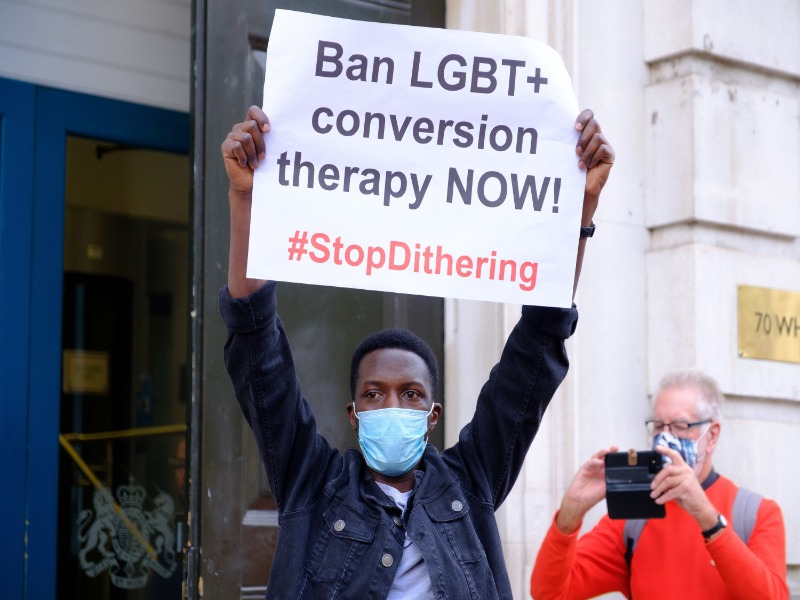A powerful letter issued by a group of church leaders, which argues that there is no justification in excluding trans people from the ban on conversion therapy, has been endorsed by the Revd Clare Downing, Moderator of the United Reformed Church General Assembly.
Last week, the government announced that it was dropping plans to ban conversion therapy entirely.
Hours later, following major backlash, it made a controversial U-turn saying it would only ban gay conversion therapy, not trans conversion therapy.
“To be trans is to enter a sacred journey in becoming whole: precious, honoured, and loved by yourself, by others, and by God,” say the leaders in the letter.
“Conversion therapy [is] pressure put on one person by another to fit their expectations: the attempt to induce vulnerable and isolated people to deny who they truly are.”
The government has been promising since at least 2018 to introduce a ban on so-called conversion therapy, practices which aim to change, modify, or suppress a person’s sexual orientation or gender identity. It ran a consultation on its plans at the end of last year.
Revd Downing added: “To exclude trans people from the protection of the law is both discriminatory and unfair.”
Through an emergency resolution at Assembly Executive in November 2021, the URC affirmed its opposition to conversion therapy, supported proposals to ban all conversion therapy, and urged that the current proposals be strengthened.
The URC responded to the government’s consultation in December to express these views, which were also backed by URC Youth Assembly.
The Revd Alex Clare-Young, a trans URC minister, explains why they signed the letter and why a ban would be important to them: “I believe in dignity and protection from abuse for all. When facing the continuing erosion of trans safety and care, I am glad to be a part of a denomination which seeks to protect LGBTQ+ people from harm, rather than controversialising our identities. I look forward to a time when we can celebrate the gifts that trans and non-binary people bring to society, and when all people can enjoy life fully, free from prejudice and persecution.”
Read the letter in full here.

